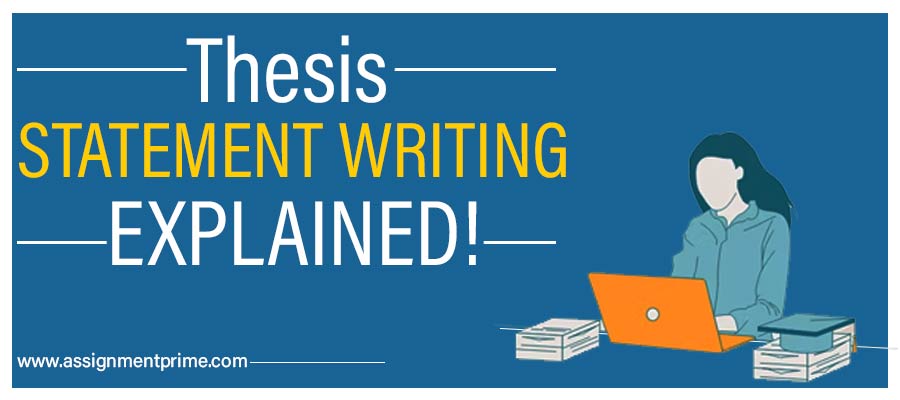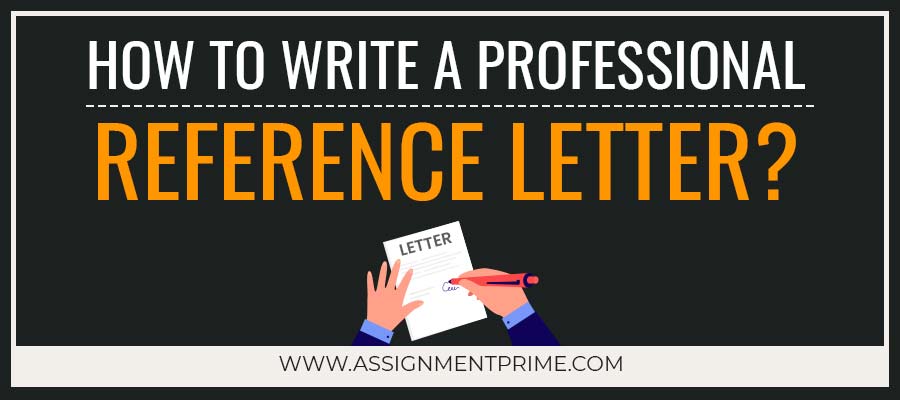What Is Emotive Language? Definition, Usage & Examples
12 Mar 2021 5408.jpg)
Table Of Contents
- What Is Emotive Language?
- What Are Some Best Emotive Language Examples?
- Where Is Emotive Language Used?
- How Is Emotive Language Used in Literature?
- How Is Emotive Language Used in Daily Life?
- What Are Emotional Words to Use in Writing?
- What Is the Impact of Using Emotive Language?
- Confused About How to Use Emotive Language in an Essay? Let Us Do It for You!
“One hundred years later, the life of the Negro is still badly crippled by the manacles of segregation and the chains of discrimination. One hundred years later, the Negro lives on a lonely island of poverty in the midst of a vast ocean of material prosperity.”
What do you feel after reading this excerpt from Dr. Martin Luther King, Jr. 1963 Civil Rights Speech, “I Have a Dream?” Do you feel bothered and unsettled? If you were a part of the audience back then, would you have taken action in the Movement to end racial discrimination, segregation, and disenfranchisement against African Americans done by White Men?
The way he depicted the lives of African Americans in the United States compared to White People stirred up millions of people and evoked thousands of emotions in them. His belief in nonviolence and strong use of figurative and emotive language led many people to participate in the Civil Right Movements.
Yes, emotive or emotional language leaves a great impact on the audience and compels them to take any action that elicits an emotional response. In this blog, we will talk about what emotive or emotional language is, how and where it is used, its examples, and how you can use it in your academic writing. Let’s begin!
What Is Emotive Language?
The word emotive might have given away the concept of emotive language to you. It essentially means the use of certain words to incite the emotions of the reader. Therefore, it is concerned with the word choice of the writer. When the writer or speaker chooses specific words that directly or indirectly appeal to the emotions of the reader or listener, they are using emotive or emotional language. The aim of the writer is to communicate his visions in the clearest way. In doing so, they try to stimulate the receiver's underlying emotions, influencing them to support or agree with the writer. Basically, through this technique, the writer tries to evoke emotions in the reader that he has pertaining to the subject. Now that you have understood the emotive language definition, let's elaborate on the concept with some examples you might be familiar with.
What Are Some Best Emotive Language Examples?
Speeches are popularly known to use emotive or emotional language as the need to appeal to the audience is larger and immediate in the case. Speeches by world leaders make a good example of the usage of emotional language. They are known to use it as a tool to influence the masses. Here are some of the well-known speeches that serve as good examples of usage of the language:
‘I Have a Dream’ by Martin Luther King
One of the best examples of the language is the speech ‘I have a dream’ by Martin Luther King Jr., the excerpt of which was provided at the beginning of the blog. Here is another extract from it:
"We know through painful experience that freedom is never voluntarily given by the oppressor; it must be demanded by the oppressed. Frankly, I have never yet engaged in a direct action movement that was 'well-timed,' according to the timetable of those who have not suffered unduly from the disease of segregation. For years now, I have heard the word 'Wait!' It rings in the ear of every Negro with piercing familiarity. This 'Wait' has almost always meant 'Never' ...”[April 13th, 1963, Martin Luther King Jr.]
Here you can spot a lot of words and phrases like 'freedom,' 'painful experience,' 'oppressed,' 'suffered,’ 'disease of segregation,’ and ‘piercing familiarity' that are creating some effect on the listener, making the speech powerful. His entire speech was laden with such phrases, which is why it appealed to the masses and still touted as one of the most powerful speeches in history.
‘We Shall Fight on the Beaches’ by Winston Churchill
Winston Churchill is known as one of the most prominent political leaders of all time, and his political speeches are known to appeal to and incite patriotism in people. Here is an excerpt from his speech where he was motivating people to take part in a war:
"…we shall defend our Island, whatever the cost may be, we shall fight on the beaches, we shall fight on the landing grounds, we shall fight in the fields and the streets, we shall fight in the hills; we shall never surrender, and even if, which I do not for a moment believe, this island or a large part of it were subjugated and starving, then our Empire beyond the seas, armed and guarded by the British Fleet, would carry on the struggle, until, in God's good time, the New World, with all its power and might, steps forth to the rescue and the liberation of the old." [1940, Winston Churchill]
Here, he uses the pronoun "we" to incite the feeling of belonging among the listeners, and the phrase "we shall" is repeated to encourage them to take action. Further words like 'struggle,' 'starving,' 'subjugated,' 'rescue' is used to create sympathy in the audience towards those fighting.
There are many other examples of usage of the language besides in speeches like literature and our daily lives that will be discussed further in the blog. But before we explore an emotive language examples list, let’s understand where all it is used.
You May Also Like: 10000 word dissertation structure
Where Is Emotive Language Used?
The language is used in both verbal speech and written. It can be used in a number of ways. You can find it being used in novels, plays, short stories, poetry, speeches, etc. Basically, they are used in any form of speech or writing where one is trying to influence the reader or listener.
It is used to engage the readers and make them feel what the writer is feeling. Any piece of writing that is trying to put across a certain standpoint or view of the writer can employ emotive language to fulfill that purpose more effectively. This is why most speeches by influential leaders display a heavy usage of emotional language. It intends to cause an effect on the audience, and when used efficiently, it can lead the audience to react or act in a certain way. This is how speeches throughout history have caused movements, revolts, and revolutions. So, is the use of emotive language positive or negative or both? Not all the time does the usage of such language lead to a response in favor of the writer. At times, it can cause a negative response or backlash from the audience who might not agree with the viewpoints and appreciate the writer trying to influence such opinions.
It is highly used in literary works like novels, poetry, short stories, etc. Its usage, however, is not only limited to fiction but can also be used in non-fictional work like biographies, personal blogs, articles, etc.
How Is Emotive Language Used in Literature?
When you are writing literature, one of your primary goals is to engage the audience and make them feel something through your writing. And emotive language is the way to do that. It adds a dramatic value to the write-ups and engages the readers in a dynamic way. In literature, such a language helps in character building and in showing intensity and drama. The author tries to use words that correlate to the characters or theme of the literary piece to present them more vividly to the readers.
Here, unlike in other cases, the emotions of the characters are conveyed rather than that of the writer. So, not only are emotions being displayed, but the character is being defined steadily by the usage of emotive words. These can be emotions like love, envy, jealousy, sorrow, happiness, enthusiasm, pride, patriotism, optimism, disgust, etc.
Here is a fragment from Julius Caesar by Shakespeare where Antony delivers a speech after his dear friend Julius Caesar’s assassination to the public:
"He was my friend, faithful and just to me. But Brutus says he was ambitious, And Brutus is an honorable man. . . When that the poor have cried, Caesar hath wept. . . Yet Brutus says he was ambitious, And Brutus is an honorable man. . . I thrice presented him a kingly crown, Which he did thrice refuse. Was this ambition? Yet Brutus says he was ambitious, And sure he is an honorable man." [Julius Caesar, Shakespeare]
This excerpt from Julius Caesar is a good example of the role emotive language plays. Antony gives this clever speech to the public without directly stating that Brutus and his friends were wrong in murdering Caesar. Instead, he uses emotional language to indirectly influence his audience to feel sympathy for his friend. While seeming to have no ill-temper against Caesar's murderers, he incites the feeling of anger and injustice among his audience through his language. He uses the word 'faithful' and 'just' to showcase the merits of Caesar while using the word 'ambitious' and 'honorable' repeatedly to indirectly taunt Brutus.
How Is Emotive Language Used in Daily Life?
While you might have started this blog with the question 'what is emotive language,' you might be surprised to find out how commonly we use it and encounter it in our daily life.
Let us start with how we use it. Think about the time you were convincing your parents to buy you something as a kid. You would go on elaborating how happy it would make you feel or how beneficial it will be to you. Chances are, to do this, you might have used emotional language. Or another common situation all adults have experienced is when they explain to someone something they are passionate about. For example, "music gives rhythm to life" is something a musician might say to express how important their art is to them.
There are many such cases where we use persuasive and emotive language to convince or express ourselves daily. But apart from that, we also encounter it in various other forms. Here are some examples:
- News: News channels are notoriously known for excessively using emotional language to grab the attention of the viewers. For example, rather than saying, "A guy was attacked by 5 dogs", it would be presented as "Guy fought for his life as 5 monstrous dogs attacked him."
- Advertisements: Similar to news, advertisements also have the motive of grabbing eyeballs so that attention is drawn to the brand. Brands are known to use jingles and slogans to appeal to the masses. For example, the Loreal slogan "because you're worth it."
- Public announcements: Public announcements also have the need to appeal to people so that they are alerted and remember the information provided.
- Movies and plays: Movies also have very rememberable dialogues which connect to the people as they appeal to their personal experiences and emotions. Plays are supposed to be a dynamic and expressive art form, and since the props and settings are minimum compared to movies, such language is heavily used to narrate and depict states.
What Are Emotional Words to Use in Writing?
The emotive language effect is attributed to the usage of the right words at the right place. There are many words that depict emotional states. Most of the time, these words eliminate the need for elaboration and explanation of situations. Here is a list of emotions/emotive words:
- Exhausted
- Afraid
- Agitated
- Adored
- Attracted
- Astonished
- Bored
- Brave
- Calm
- Confused
- Comfortable
- Cheerful
- Critical
- Confident
- Confused
- Curious
- Cynical
- Defeated
- Disgusted
- Depressed
- Embarrassed
- Ecstatic
- Funny
- Furious
- Hopeful
- Hurt
- Horrible
- Proud
- Infatuated
- Greedy
What Is the Impact of Using Emotive Language?
Why do writers use the language? As already discussed, emotive language is a powerful writing tool that can influence the audience of the subject. When used effectively, it can communicate the writer's emotions to the reader and incite the same. Therefore, it can shape the opinions and reactions of the crowd. It is planned accordingly by writers and speakers to leave an impact on their audience. But is it appropriate to use such a language in all circumstances? As discussed in the initial part of the blog, it can have both positive and negative impacts. A negative idea can be spread to the audience instead of a positive one through emotive language fallacy. Also, a writer trying to put across an unpopular or delicate idea through such language can receive backlash from the audience if they disagree.
Here are some ways it has an impact on the reader:
1. Engages the audience
Emotive language makes the speech more interesting, and therefore, engages the audience better as they stay connected. It helps them get in-depth meanings of the subject that is presented without being too complex.
2. Helps the audience connect to the subject
The audience is better able to connect to the subject of the speech when they can feel the emotions that are presented. These help them relate the subject to their personal experiences that caused the same emotions.
3. Helps to communicate better
As mentioned in the first point, it helps present complex states in simple words. Presenting emotions helps communicate ideas more precisely to the audience.
4. Better expresses the writer
Such language doesn’t only have an impact on the audience but also on the communication of the writer. It helps the writer express his ideas better by using emotive words.
5. Evoke emotions
Ultimately, passive language evokes in the reader the emotions the writer intends to communicate or incite.
Confused About How to Use Emotive Language in an Essay? Let Us Do It for You!
Although you might have understood what emotive or emotional language means, you might still be wondering how you write using the language. Well, even though you might have understood the concept, it is difficult to write an emotive language essay. Students might have read all kinds of emotional language examples, but they struggle when it comes to employing them in their essays. Don't worry; Assignment Prime is at your aid. We have experienced essay writers with excellent language skills, equipped to write essays using any technique or structure. All you need to do is specify that you need the essay written using emotive language while ordering, and our team will take care of it. Here is what you get when you order an essay from us:
- Written by subject-oriented writers
- Delivered to you before your deadline
- Free and unlimited deadlines
- A plagiarism-free report to ensure originality
- A paper report to showcase the quality
- 24X7 support for convenience
- Ownership guarantee to avoid any future problems
- Assured discounts on every order
And much more! If you are still wondering what emotive language is or how to use it, then Assignment Prime is the solution to all your confusion. Why spend hours on confusing concepts when you can trust the experts to deal with them. Need more convincing? Order an essay through our mobile app to avail yourself of an additional 5% off!
You Might Find This Helpful:
To Make Your Work Original
Paraphrasing Tool
Check your work against paraphrasing & get a free Plagiarism report!
Check ParaphrasingPlagiarism Checker
Check your work against plagiarism & get a free Plagiarism report!
Check PlagiarismReference Generator
Get citations & references in your document in the desired style!
Generate ReferencesGrammar Checker Tool
Make your content free of errors in just a few clicks for free!
Grammar CheckerEssay Typer
Generate plagiarism-free essays as per your topic’s requirement!
Essay Typer
FREE Features
-
Topic CreationUSD 3.96 FREE
-
OutlineUSD 9.57 FREE
-
Unlimited RevisionsUSD 21.18 FREE
-
Editing/ProofreadingUSD 28.7 FREE
-
FormattingUSD 8.2 FREE
-
BibliographyUSD 7.52 FREE





![All About Short Essay Writing [Examples Included]](https://www.assignmentprime.com/images/AP_Blog_Image_How_to_Write_a_Short_Essay.jpg)





